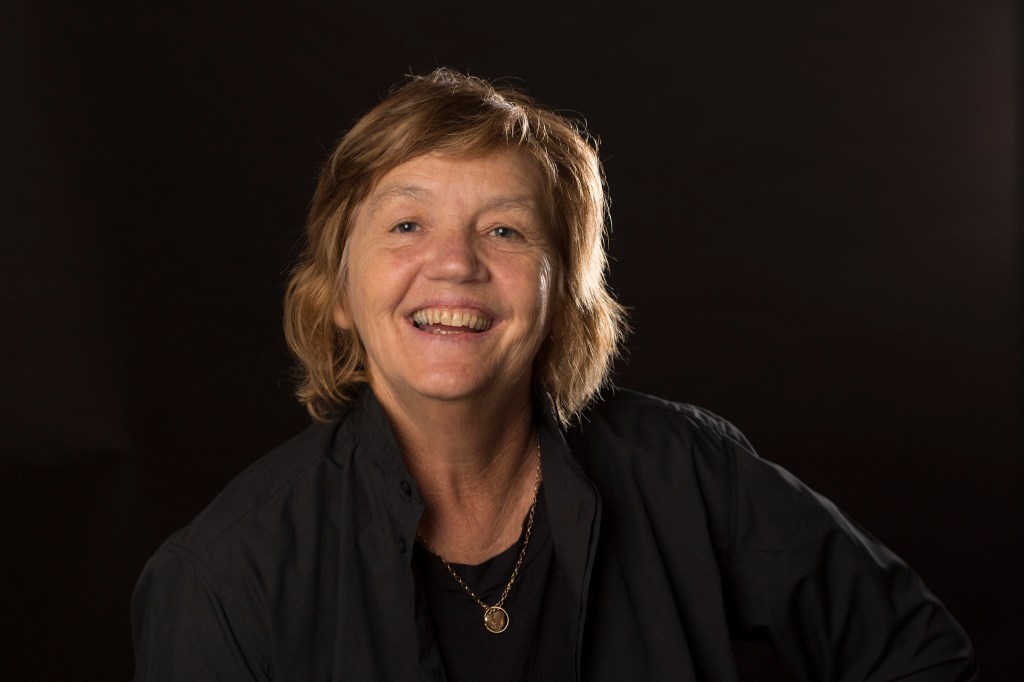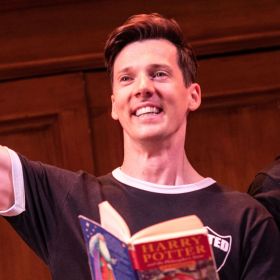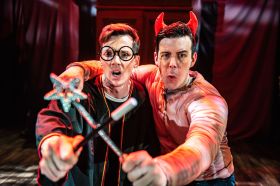I’m going to start this keynote with a memory, and it’s a memory that is so vague that I’m fairly certain I’m embellishing it a bit. Perhaps a lot. But that’s what playwrights do.
It’s 1976 and I’m in my early 20’s. I’ve only just completed my course at Rusden State College in the backblocks of Melbourne.
Starting at Rusden, I can’t tell you how thick I was. Unbelievably thick. About politics in general, about feminism, about class politics, about race politics, about understanding the world at all. Thick as.
Rusden scratched away at my naiveté. I fell deeply in love…
I fell deeply in love with acting.
I wanted to be the best, the most courageous, the most spectacular actor. I wanted to push the boundaries, express deeply, soar. I’d never felt as passionate about anything in my life. The attraction is that I saw it as transformative, as intricately psychological, as a kind of a transcending, an investigation into an internal world.
I was yearning to find a way out of my very small world. I was hungry for difference, for rubbing against the expected. I wish I could say I was a rebel but I was still quite thick and unable to articulate this desire to challenge the world in any way.
So, the memory.
It’s 1976, I’m in Sydney and I can’t remember how come. I take a taxi to see Lindsay Kemp’s Flowers. I can’t remember where it was on.
Lindsay Kemp’s company was British, had various homes and toured widely. The company was a fusion of various theatrical forms, dance, mime, cabaret, impro – a synthesis of many traditions, including Butoh, with Kemp’s own inventions.
I’d read Jean Genet’s novel, Our Lady of the Flowers and Kemp’s production was an adaptation. I can say quite frankly that I didn’t fully understand Genet’s book. I was way out of my depth but there was something very exciting to me about the world he was exploring and I wanted to know more.
What I remember is a world I didn’t know, had never experienced but believed in immediately. A world that was both metaphorical and real. It was full of haze, of half-clad actors, of sublime tableaus and exquisite images and movement. I think it was all men. It was queer. It was abstract. I don’t remember there being any words. It was both bewildering – to me at least – and inspiring. Gorgeous.
Now, I can fuck with that memory and because I’m smarter, say it was also about class, about crime, about sexuality, about conjuring up the ‘Divine’ in order to survive a cruel criminal system.
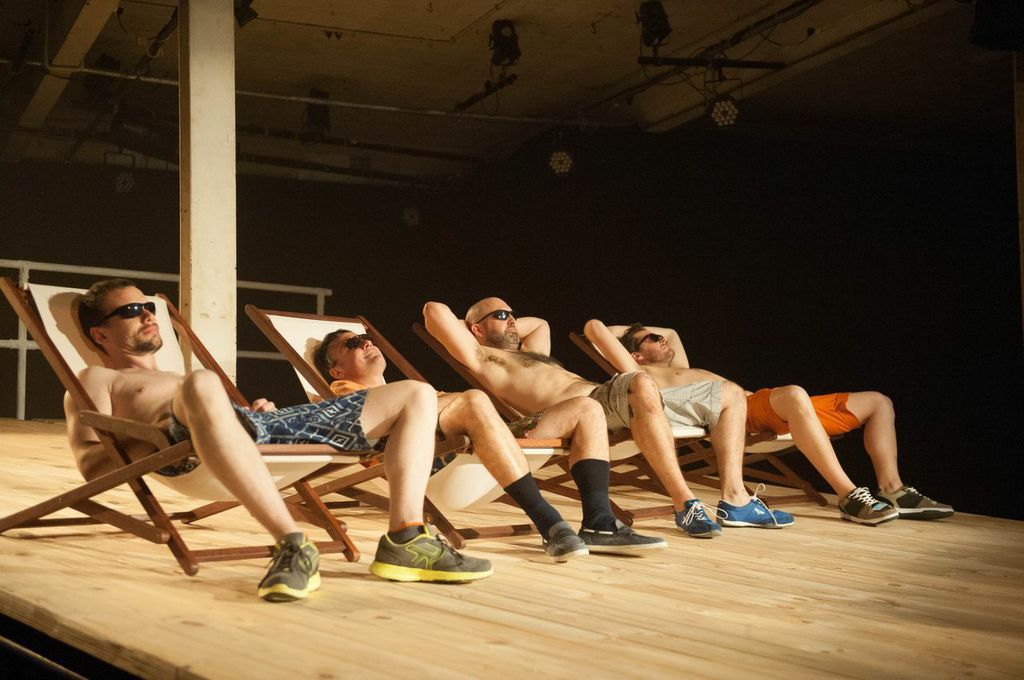
I left that theatre elated. And perhaps dreaming that Lindsay Kemp might take me on as the only female member of his troupe. There was something in it I wanted. A form of expression that was seductive and engaging, daring and wretched, and full of great beauty.
If I was to see that same production of Flowers tomorrow, I wonder if it would still excite me. I wonder if I would think it was a bit of a wank. Befuddling. Perhaps. I know how we can turn on something that we don’t immediately understand. How suspicious we are with the abstract, when we use heightened styles, when a work takes us into unchartered territory. I’ve witnessed people being offended and quite reactionary in response to innovative works, refusing to give them consideration. They want the linear, they want the reflection of what they know, the slice of life.
I desperately want to be taken there, into unchartered territory, to metaphorical or allegorical worlds that invite me to unfathomed depths. But sure, there are works that are full of fluff, that are half baked, images that are bamboozling and are indulgent and worst of all, not about much. We know these. Though I must admit, I do meet people who are less bamboozled at these than me.
There are also works that are potentially about a lot but are bound in convention, suffocating in a pedestrian naturalism, lacking the craft, the seduction, to allow the revisiting of ideas or the introduction of the new.
The importance of artist-run companies
There are theatre companies all over the world, artist-run companies that have made their mark on the theatrical landscape. They are inspired, investigative, innovative, experimental, sometimes gobsmackingly audacious. They are companies that have had enormous influence, have inspired many theatre workers, have opened up new and powerful ways of creating an often-challenging theatre.
Most of these companies are formed by a number of like-minded theatre makers, fellow artists, looking to make work that says something about the world, in a new, vital and powerful way, and they’ve developed an unmistakable shared performance language and technique.
There’s the Spanish company, La Fura dels Baus. I saw a production of that company too, again in Sydney, and was part of an exhilarated audience forced to flee a dangerous and seemingly maniacal actor with a gigantic and roaring chainsaw – thrilling.
There’s The Wooster Group in New York who brought their production, The Hairy Ape by Eugene O’Neill to Melbourne and I was transported away. And there are many, many more.
And there are companies that no longer exist that had a huge impact on theatre culture.
There are Melbourne companies such as Anthill, The Church, Jenny Kemp’s Black Sequin Productions, Hayloft, Real TV, Black Lung.
There are many more that for various reasons, my guess financial, would be top of the list, ceased too early to have much impact.
I want to apologise here for being Melbourne-centric in listing these companies. I know Melbourne better of course, but I’m fully aware that there are or were independent and experimental companies across the country, and definitely here in Sydney, that have or could have had enormous influence on the sector.
Unfortunately, I never did hear from Lindsay Kemp so was forced to look closer to home.
Read: Career spotlight: Playwright
Ten years later. I’ve got smarter, met people who know things, who have strong politics, am asking questions, worked with a couple of experimental theatre companies, performed in various independent works.
I begin to write. So desperate am I to perform, I write for myself. The first work, a dramatic monologue titled Witch. I perform it at La Mama. I write for myself some more.
I call myself an actor who writes sometimes. It takes me a while to claim myself as a playwright. The old imposter syndrome thing perhaps, or still hanging on to my first love.
I meet two actors, Michael White and Steve Payne, lefties, got fire in their bellies, reacting to the blatant attacks on trade unions, they ask me to join them to create a theatrical work under the astonishing banner introduced by Oz Co: Art and Working Life. Astonishing because who’d have thought that the Oz Co could care less about access of working-class people to art. I haven’t heard anyone talk about access, about who goes to the theatre, about the politics of that in a very long time. No surprise, the Oz Council’s interest didn’t last.
It’s an ambitious project, based at the work site of Jolimont Railway Maintenance Depot which had about 400 male railway workers and three canteen women. It was research based, it was to tour in workplaces, it was welcomed and we were housed with office and rehearsal space on site because of the support of Jolimont’s allied unions.
The play was called State of Defence and was the first professional gig for the playwright, straight out of VCA, Andrew Bovell.
And it was the first of 36 plays, over a period of over 20 years, by a company that offered playwrights, directors, actors and other theatre workers a vibrant base to create new and unexplored Australian work.
The company was Melbourne Workers Theatre.
The name gives no clue to the company’s fresh and innovative and experimental nature. It’s certainly not the kind of experimental work that I witnessed in Lindsay Kemp’s Flowers yet still it was experimental to its core.
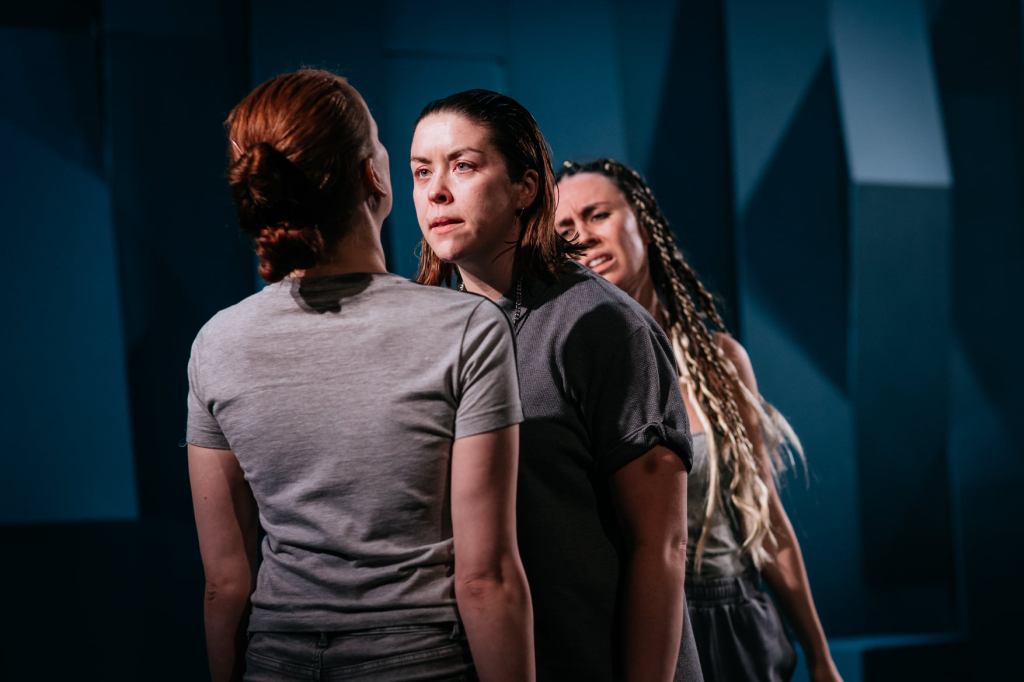
It was a company telling stories that have rarely been told, stories about work, about having no money, about being treated like shit, about fighting back. It was using anything and everything to win an audience unused to theatre, in stolen time on their lunch breaks, in huge canteens, from the back of semi-trailers, on the factory floor.
Our politicisation was overwhelmingly fast and exhilarating and confronted with the constant need to avoid the didactic. How to write about and present a world that is tough, brutal at times, that is always about money, the lack of it, about how to survive week to week, about the loss of dreams, about anger, and yet make the work sing, make it hilarious at times, sometimes sublime?
The company offered playwrights an apprenticeship of sorts. It developed a process of research in which the actors were involved and would feed back. Workshops and readings were an essential part. It took playwrights into the intricate workings of a theatre company. But most importantly, it provided debate, discussion about politics and art, about how to make work with clout and ferocity, and great tenderness. It grew more progressive in its inclusion of Indigenous voices and people of colour.
The company went back to theatres, mostly because it became difficult to gain access to workers in the workplace. We were confronted with the question of who we are making the work for and who sees it. At the same time feeling excited to have the luxuries of lighting and sound and ambience. Still concerned with the innovation and experimentation in inventing techniques and language to be able to seduce as well as maintaining a strong political intention in the works. Developing craft.
The company introduced a host of fine playwrights to the industry. Andrew Bovell, Irine Vela, Melissa Reeves (who brought her own experience of working with an artist run company in Adelaide: The Red Shed), Vicki Reynolds, Archie Weller, Christos Tsiolkas, Kate Gillick, Maryanne Sam, Andrea James (who also became the Artistic Director of the company for many years), Spiro Economopoulos, Dominic Golding and others.
It also co-opted playwrights who were already out there working like John Romeril, Roger Bennett, Richard Franklin, Donna Jackson, Wayne McCaughley, Peta Murray and Angus Cerini.
A feast of fabulous playwrights, many of whom are still working in our rather beleaguered industry.
Picking off smaller companies
I’m not sure when the demise of funded small and medium range companies began. It feels sneaky to me. It feels like they were being picked off one by one so that we might not notice and make a fuss.
I think there’s a natural end to companies. They sometimes burn out, or they lose their way, the work becomes less and less interesting. Time to move on. What’s disturbing is when they’re not replaced, when new companies are not offered their chance.
And where do we go? Us playwrights, with our plays in hand?
We can apply to the funding bodies, the Australia Council and state arts orgs and the philanthropists and we may be successful but prolonged by having to do a workshop which is fine but with no commitment to production. So, apply again. And apply to numerous bodies because one grant isn’t enough. And even when the grants are successful it’s still rarely enough and the show is compromised and cast and crew probably not paid enough. And they’re one offs. There are huge gaps before the next play, huge lonely bloody miserable gaps.
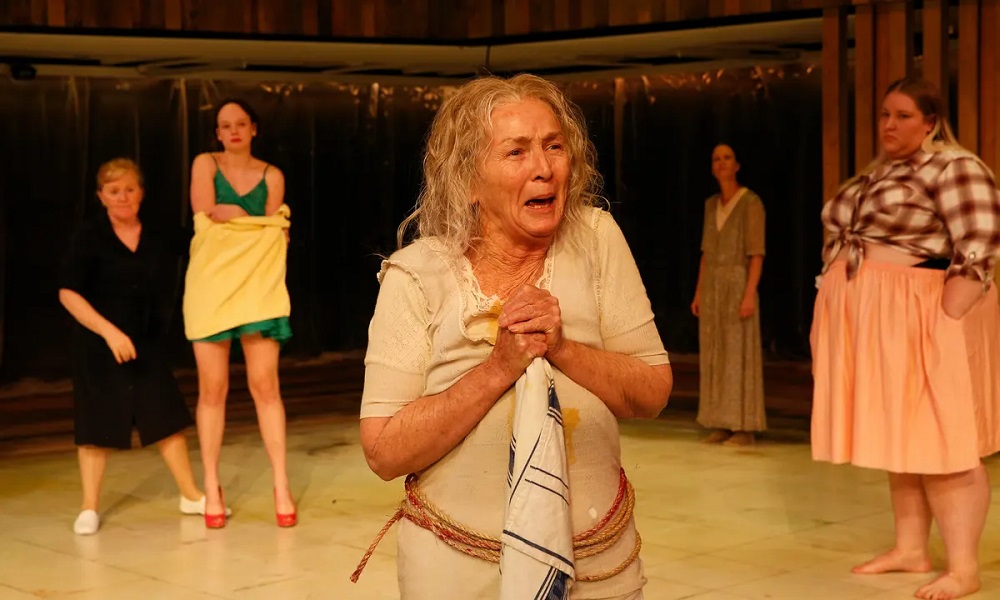
Don’t get me wrong, I’m delighted when I receive funding – it’s a lifeline for sure. But there are a lot of us and funding for independent artists is tiny – in fact it was never entirely replaced when Brandis stole it from us, and it’s got to be shared. The grants are one-offs. Many companies that still exist are forced into a project-by-project basis so that there’s little chance to dream and no chance at all to take risks.
We used to talk about risks all the time. As if they were a must. The most vital element to a work. Now I hear it in relation to financial risk. That a work may be too bold or radical or say fuck or cunt too much and risk offending, risk walk outs, risk complaints.
I’ve known many playwrights who have a play that needs to go on. They’ve had numerous workshops, numerous readings and cannot get funding or a funded company to take it on. They are stuck. The process is a fuck up because they can’t learn from that final step; to see their work in production. Perhaps the play’s not good enough, I don’t know, but perhaps if it had a company who would see it through then the next play would be a finer one. The apprenticeship that’s needed.
Where else can we go?
We can go to the mainstream companies. Occasionally an Australian playwright gets a play up but mostly the program favours predictable works that risk nothing from the US and UK. Apparently, theatre audiences actually like Australian plays and they do well at the box office, but this doesn’t seem to whet their appetite for us.
Sadly, I’ve met playwrights who believe that the mainstream is the only alternative, and more sadly that they’re the only companies worth aiming for, the Mecca. And sadder still, sometimes I feel that too. To get a play on with more than three characters needs a theatre company with the resources to pay for them. And, if there is no-one else to go to…
The mainstream offer commissions to playwrights. There’s no production necessarily but it’s a payment to write, so that’s fantastic. The MTC has given a huge number of commissions in the last years, having won some philanthropists’ backing. The MTC has a poor reputation for honouring commissions. One can only think that the generous benefactors might get pissed off with that. And, with the new leadership of Anne-Louise Sarks, hopefully that will change. But in the meantime, where do we go with these plays? Where do we see them to fruition?
We can’t go to ABC radio because radio drama has been cut.
What is most heart-breaking is the play that gets up and is highly successful, a box-office hit, glowing reviews, fantastic word of mouth. It’s premiered in an independent venue like fortyfivedownstairs or La Mama. The play has undeniable life-force. It’s blown people away. But, gone is the old tradition of a bigger, better resourced company picking it up for another season, or for the work to be picked up for a season in other states. How come? Is it a competitive thing? Who the fuck knows?
Where else? We can go to those who have been fighting the fight alongside us. Those who we work with regularly and who know our work and know how to read it, know how to give it life. Those with whom we share a similar vision. Those who offer you the discourse you’re dying for.
The director Susie Dee and I have worked on many shows together. Most of them in the independent sector, though in 2019 Susie was invited to bring work from Australia to present for the Venice Theatre Biennale. She presented two of my plays: Love and SHIT. Susie and I have formed a small company called Dee and Cornelius and it’s about as close as you can get to a small range company. I believe the playwright, Noëlle Janaczewska and Kate Gaul from Siren Theatre Co, have a similar relationship.
The lack of fight against the demise of these companies is disappointing. There’s a sense that there’s no way we can ever get them back. No talk of how invaluable they are, how they are our go to’s, how they are the companies primarily interested in developing new Australian works. How they are also committed, mostly because it’s not financially viable to not be, to seeing a work through. And to see a work through demands the support needed to get a new work ready for production, workshops, dramaturgy, readings. These companies are the backbone of progressive and exciting contemporary culture.
Artist-run somehow became suspect. As if there was some kind of rip-off happening, as if it was a dodgy concept. Artist-run. Fuck! Must be on the nose. Must be a ruse. Artists! What do they know?
I’m all for accountability. I’m all for being paid properly, for instituting the right work practices, but all of a sudden it seemed artists couldn’t be trusted. Governance and boards with almost anyone but an artist became mandatory. The ceaseless corporatisation of ideas and of art is terrifying.
It’s the artist-run companies that have had enormous impact on theatre. It’s their dreaming that has created the conditions for works that have the potential to ignite imaginations for generations.
Conspiracies of silence
It’s been a couple of years full of crackpot conspiracy theories and I’ve got one, but of course mine’s not crackpot. Mine’s a bloody good one. Mine’s about the deliberate silencing of Australian contemporary stories in theatre in fear that they may be radical, overly critical, or just plain old political.
Where are the plays that rattle, that rage, that disturb us utterly, that speak of our history and its lies, that show our diversity, that dare to reveal how despicable is this country of ours, that make demands, that are fierce and radical, going to find a home? We have had our small and medium companies taken from us. We have become beggars to the mainstream, cap in hand, and their first concern is box-office. Our independent sector is under siege. Funding is too fucking hard to get and too meagre.
I reckon I’m on to something with this conspiracy of mine.
The stories about this country and its inability to acknowledge the rightful caretakers of this land, the stories about this country’s Indigenous deaths in custody, this country’s rise of right wing white supremacist groups, this country’s cruel and illegal imprisonment of refugees, this country having the highest number of death of women from domestic violence than any other, stories of enslavement of sex workers, the needless and most extraordinary number of deaths of workers on building sites, stories that contest gender and sexuality, and the many more stories. Stories that are met with craft and vision and surprising insights. Stories that struggle to be supported to find a home.
We have a tradition of turning our backs on our own in this country especially if they should be outspoken and especially if it means standing up to a greater power than our own. The idea of our larrikinism, our thumbing our noses at authority is bullshit.
During the Vietnam War, an illegal war, the journalist Wilfred Burchett, living in North Vietnam, wrote about the immoral and illegal invasion of that country and was exiled, never allowed to return to Australia ever again.
After 9/11 there was a mad round up of so-called terrorists. Australians David Hicks and Mamdouh Habib were taken to Guantanamo Bay. They were tortured and isolated, Hicks for six years. Not a peep from the Australian Government. Finally, an American Major, a lawyer, fought for and won Hicks’s release.
I wrote a play, The Call, inspired by Hicks’s story and was amazed by the research that revealed how six English men, Muslim men, who had also been rounded up and taken to Guantanamo were, within days, put on a plane and sent to Heathrow Airport. Blair had demanded that they be released. When they landed they went straight to their homes. Clearly British Intelligence knew it was a beat-up and they were protected. Hicks and Habib? In Guantanamo for six years!
Right now, Julian Assange awaits extradition to the US for publishing material that revealed the truth about a slaughter committed by the US military. If he’s extradited, he will most likely spend the rest of his life in an American prison. Our governments have been silent. No attempt to bring him home. No attempt to defend him.
We don’t look after our own.
Here comes COVID
We were already in trouble and along comes COVID. We have not been looked after. It became a scramble to get works on, constantly thwarted by yet another lockdown, and the emergence of another strain.
Melissa Reeves’ play, Archimedes War, was programmed four times and only through the generosity and faith of the cast and crew did it finally get its season. No financial support from arts funding bodies. Plenty of hardship born by cast and creatives and crew.
The arts continue to be neglected terribly – the financial support is poor and too difficult to access. Shows are pulled and not re-programmed. Audiences were reduced and deterred, meaning poor box-office returns. No support to cover this.
It has been a miserable time for us. We’ve been isolated, we’ve earned little or no money. Those of us who have been writing, write with constant uncertainty. Those of us who have stopped have lost heart. Lost heart. How devastating is that? Everything is unprecedented – the world feels more uncertain than it ever has.
Read: Why drama is the most important school subject
Of course, it’s not only the arts that is revealed wanting; homelessness, housing, poverty, poorly equipped hospitals, aged care verging on torture camps and so much more.
I remember thinking, how in hell am I going to write now? This is so big, enormous, the entire world is in incredible danger. This has got to be some kind of call of sorts, there’s no going back to what we were, something has to mightily shift. We have to write plays to grapple with the enormity of it. We have to take it on. We have to imagine the stories and the techniques to frame them that will give some insight, alternative ways forward perhaps.
And it only gets worse as it is matched with disaster after disaster as the earth wreaks its vengeance on our mistreatment of it. And we’re further pushed with the war in Ukraine, and the atrocities of the Russian invasion.
We are in for a period of bleak works for sure. Bleak. I love bleak. I think our audiences are quite prepared to handle bleak. I think that we underestimate their capacity to enter and understand profound and terrible worlds. If the plays are artful, crafted beautifully, seductive, powerful and have purpose, why wouldn’t they?
My biggest fear and I’ve had a whiff of it, is that I’m wrong. Instead of taking on the bigger story there will be a push not for the profound but for the feel-good, for work that pleases people, that entertains them, keeps their minds off the fucking mess we’re in.
I fear that the sense of urgency will seep away.
I wanted this keynote to be uplifting, I really did. I wanted to make this an intro to a truly celebratory weekend. I think maybe I’ve fucked that. Gone a bit bleak.
What’s amazing about having a playwright’s festival is that we do have something to celebrate. Against all odds many of us are still writing. Despite the miserable and contemptible time it has been for us, which has only been exacerbated by COVID. We are underfunded. We are rarely included in literary festivals. We have a single playwright’s organisation and it’s been defunded. The Salamanca Script Centre – this fantastic archival centre that enabled access to our work from anywhere around the world – also lost its funding. We are poorly represented on our stages. Bloody hell, and we’re still writing!
I look forward to our stories.
This is an edited version of the keynote speech given by Patricia Cornelius at the Australian Playwrights’ Festival, 18-20 March 2022, Sydney.
